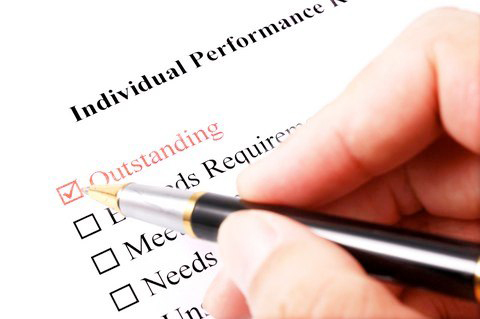084_Conducting A Performance Review
084_Conducting A Performance Review

If you are a manager, giving a performance evaluation in English is a big challenge. What phrases should you use to express your evaluation of an employee? How can you get them to give you their self impression?
- Kevin:
- Hello and welcome to Nichibei Kaiwa Gakuin Podcasting. A great place to review English words and phrases. In the previous episode, episode 84, we heard two managers discussing phrases and strategies for conducting a performance review. In this episode we listen in on an employee who is preparing for her first performance review in English. Let’s listen in.
- Kevin:
- In this episode we listen in on a conversation between two managers discussing the problem of how to conduct a job evaluation meeting, or performance review, in English using open questions.
- Jack:
- Hello Taro, how are you today?
- Taro:
- I’m doing all right, and yourself?
- Jack:
- Pretty good.
- Taro:
- Actually Jack , I’ve got something on my mind. Do you have a minute?
- Jack:
- Sure, step into my office. SFX Have a seat. would you like some coffee?
- Taro:
- Ah sure, black please. SFX
- Jack:
- So what can I do for you Taro?
- Taro:
- Well as you know I’ve been here for six months…
- Jack:
- Six months already! Time flies!
- Taro:
- Yes. And as you know the performance reviews are coming up next week.
- Jack:
- Yes that’s right.
- Taro:
- Well the thing is, you see, I’ve never conducted a performance review in English before. I want to do it right and I’m not sure of the best phrases or the best methods to conduct an interview in English.
- Jack:
- No problem Taro. I can help you with this. First lets cover some phrases for giving a formal appraisal.
- Taro:
- Appraisal means evaluation, right?
- Jack:
- Right. So you can try to start off your evaluation with the phrase, “Overall we’re very pleased with your performance”
- Taro:
- Overall we’re very pleased with your performance. Thanks. How about another phrase.
- Jack:
- OK. ahh. In general, you seem to be doing very well.
- Taro:
- n general, you seem to be doing very well. Thanks. Now what’s next?
- Man!:
- Now you should talk about their strengths.
- Taro:
- Their strong points?
- Jack:
- Yes. You can try this phrase. ‘One of your key strengths is..’ and then tell them what their strength is.
- Taro:
- OK. I’ll try.
- Jack:
- OK
- Taro:
- One of your key strengths is your ability to work independently.
- Man:
- Exactly. Very good.
- Taro:
- How about a point that is not so good. Like someone’s problems with time management, for example.
- Jack:
- Then you can say: Perhaps one thing you can work on is your time management.
- Taro:
- Perhaps one thing you can work on is your time management. OK. But what if the problem is more serious.
- Jack:
- Well you could say. One thing I wanted to discuss with you was your time management.
- Taro:
- One thing I wanted to discuss with you was your time management.
- Jack:
- Yes, that sounds good. However Taro, a very good strategy for these performance evaluations is to encourage the interviewee to do a self-evaluation.
- Taro:
- How do you mean?
- Jack:
- By asking the interviewee to give their own opinion by asking open questions.
- Taro:
- What do you mean by open questions?
- Jack:
- Open questions usually begin with: what, why, or how. You can also use questions with “tell me” or “describe to me” to encourage the interviewee to give longer answers rather than just saying “yes” or “no”.
- Taro:
- OK, open questions. Can you give me an example?
- Jack:
- Sure. Let’s imagine you want to ask about the about the XYZ project. You should say. “How do you feel about the XYZ project?” or “How are you getting on with the XYZ project?”
- Taro:
- Can I use open questions to get them to talk about their problem areas?
- Jack:
- Yes, let’s go back to the example of poor time management. You can can ask an open questions like, ” What do you think would help you to improve your time management? or ” Have you thought about ways to improve your time management?”
- Taro:
- Open questions. Excellent. I feel much more confident about doing these performance evaluations. Thanks so much for your help Jack.
- Jack:
- Anytime Taro. Glad to be of help.
- Kevin:
- That’s all the time we have for this podcast. In the next podcast, we will listen in to an employee dealing with a similar problem of how to respond effectively to performance review questions. Until next time, keep studying and remember that you can find a transcript for this podcast and listen to past episodes at www.nichibei.ac.jp . And be sure to come by Nichibei near Yotsuya station and observe a class. We have classes in business, conversation, TOEIC test preparation, and advanced studies. Find out why Nichibei Kaiwa Gakuin is a great place to build you future.
This podcast is a production of Nichibei Kaiwa Gakuin.








